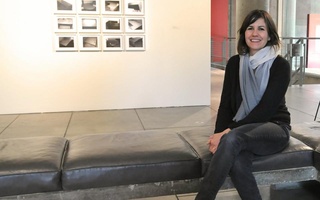During the first five months of her campaign for U.S. Senate, Harvard Law School professor Elizabeth Warren received over $100,000 in donations from Harvard employees—the largest sum any Senate candidate has received from individuals on the Harvard payroll in the past decade.
According to documents made available online by the Federal Election Commission last week, 110 employees—the majority of whom are professors—combined to donate $102,185 through the end of 2011. Warren received nearly ten times the amount that Harvard employees donated to her opponent Sen. Scott Brown.
Though Warren drew contributions from across the University, the Democrat received the strongest support from the Law School, where she has taught for nearly 20 years.
FEC documents showed that 47 Law School professors donated $62,950 to their colleague in the first few months of her campaign. The donor pool represents roughly 16 percent of the Law School faculty.
That the Law School is supporting Warren so significantly is little surprise to many professors there. Professors said that Warren is a well-respected academic and colleague who many at the school are excited to support, some in spite of politics.
“There’s great enthusiasm for Elizabeth Warren’s campaign across the political spectrum among professors (and students and staff) here at the Law School,” Law School professor Laurence H. Tribe ’62 wrote in an email. “Everyone I know finds her enormously intelligent and down-to-earth and is greatly impressed by her vision for the state and the country as well as by her amazing energy and effectiveness as a candidate.”
As Warren has found backers among her peers at Harvard, some have wondered whether her affiliation with the University has pressured professors and students into supporting her.
But professors said that their hand was not forced when making donations to the Warren campaign.
“There has not been an ounce of pressure to do anything,” said Law School professor Charles J. Ogletree.
“I don’t think there is any expectation that professors should help out, but there’s an enormous desire to do so not just as a favor to a colleague but as a genuine public service,” Tribe wrote.
In addition to offering personal contributions, several of Warren’s colleagues have served as informal fundraisers for the campaign, hosting fundraising parties at their homes or tapping potential donors from outside of the Harvard community.
Ogletree said that he and Tribe are among a half dozen or so Law School professors—who have long admired and worked closely with Warren—leading the charge on Warren’s behalf.
Tribe, who has worked closely with Warren for years and helped recruit Warren to the Law School, personally donated $5000 to the campaign in 2011. In addition, Tribe hosted approximately 85 guests at a fundraising party for Warren at his home in December.
Warren’s friend and colleague Jody Freeman, a professor at the Law School, donated $1,000 to the campaign. Freeman appeared beside the Senate candidate’s husband, Law School professor Bruce H. Mann, at an “HLS for Elizabeth Warren” event in January.
Law School professors said they expect fundraising efforts there to increase in coming months as classes let out for summer recess and professors have more free time.
The FEC numbers only represent individual itemized contributions made by donors who reported working at Harvard. The majority of donations were made after Warren officially declared her candidacy in September.
University policy prohibits institutional endorsement of a candidate, but Warren has received large donations from several notable faculty members, including former University President Derek C. Bok and professor Charles E. Rosenberg, the husband of University President Drew G. Faust. They gave $2000 and $2500, respectively.
In the 2010 special election for Senate, Harvard employees contributed roughly $54,000 to Mass. Attorney General Martha M. Coakley during her campaign for U.S. Senate against Scott Brown. Brown received $11,350 in itemized contributions from Harvard employees during that election cycle.
The race between Warren and Brown is anticipated to be one of the most expensive in the country. Warren outraised Brown in the final two quarters of 2011 overall, but Brown remains ahead in the cash race due to funds leftover from the 2010 election.
The Warren campaign did not respond to repeated requests for comment on the Harvard employee’s fiduciary support for the candidate.
—Staff writer Nicholas P. Fandos can be reached at nicholasfandos@college.harvard.edu
Read more in News
Library, HUCTW to Negotiate Through “Joint Councils”Recommended Articles
-
 Portrait of an Artist
Portrait of an Artist -
 Tribe's Letter to Obama
Tribe's Letter to Obama -
Tribe to Return to Harvard Law School in January 2011Harvard Law School professor Laurence H. Tribe ’62 will return to the Law School this January.
-
From Harvard to D.C. and Back AgainMore than two years after Obama’s inauguration, professors have begun to return to the University.
-
Laurence Tribe Will Work Closely With Massey & GailBack at the Law School after a nine month stint in the Obama administration, Tribe is planning to teach a seminar at the Law School in the fall.
-
 The White House to Harvard Exodus Continues
The White House to Harvard Exodus Continues













